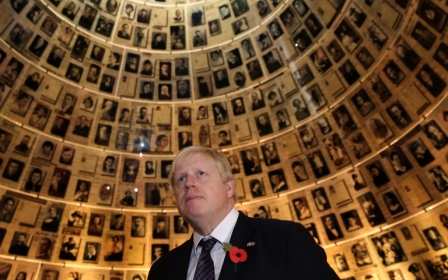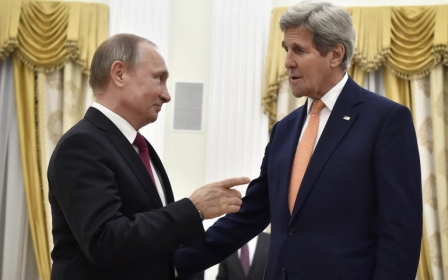UN pushes plan to relocate 480,000 Syrian refugees in West

The refugee crisis caused by Syria's war requires an "exponential" rise in global solidarity, UN chief Ban Ki-moon said on Wednesday as he opened a conference on securing resettlement places.
The aim of the Geneva meeting is to secure relocation pledges for 10 percent of Syria's refugees, or 480,000 people, which the UN wants moved away from Syria's neighbours, which carry a huge refugee burden.
Ban said the 480,000 figure was "a relatively small number," compared to those being hosted by Iraq, Jordan, Lebanon and Turkey.
"We are here to address the biggest refugee crisis of our time," Ban told the conference in Geneva. "This demands an exponential increase in global solidarity."
The Geneva meeting follows a conference in London in February where nations pledged $11bn to help refugees.
The UN refugee agency, UNHCR, estimates that 4.8 million Syrians have been forced to flee the country during five years of war, while another 6.6 million have been forced from their homes inside Syria.
Wealthy countries, however, have resettled only a small fraction of those who have fled, Oxfam said on Tuesday.
So far, rich countries have promised fewer than 130,000 resettlement spots, and 67,100 people - 1.39 percent of all refugees - have made it to their final destinations since 2013, Oxfam said.
This does not include the more than one million people who risked their lives crossing the Mediterranean last year, many of whom have found at least temporary resettlement in Germany.
"To date the response to calls of increased resettlement of vulnerable refugees has been disappointing, and the conference is an opportunity for states to mark a change of course," the Oxfam report said.
The charity said only three of the world's wealthy countries - Canada, Germany and Norway - had promised more resettlement spots than what was considered their "fair share" according to the size of their economies.
Five other countries, Australia, Finland, Iceland, Sweden and New Zealand, had promised more than half of their fair share, while the remaining 20 nations included in the analysis fell far short, Oxfam said.
France had so far promised to take in 1,000 Syrian refugees - 4 percent of the nearly 26,000 considered to be its fair share, the report said.
The US, which has resettled 1,812 Syrian refugees and said it will take in 10,000 more, has meanwhile pledged 7 percent of the nearly 171,000 considered to be its fair share, it showed.
The Netherlands also stood at 7 percent, Denmark at 15 percent and Britain at 22 percent, Oxfam said.
"We need to show Syrian people that 'solidarity' is an action, not a sound bite," Oxfam chief Winnie Byanyima said.
"Countries with a strong economy, good services and developed infrastructure can immediately resettle 500,000 refugees between them - if they chose to," she said.
Byanyima said one in five people living in Lebanon and one in 10 in Jordan are Syrian refugees. Jordan counts a refugee camp as its fourth-largest "city".
"These countries have fragile economies and weak infrastructure. They can no longer shoulder this responsibility virtually alone," she said, insisting that the Geneva conference "should result in urgent solutions, offering people safe and legal routes to a welcome in third countries".
New MEE newsletter: Jerusalem Dispatch
Sign up to get the latest insights and analysis on Israel-Palestine, alongside Turkey Unpacked and other MEE newsletters
Middle East Eye delivers independent and unrivalled coverage and analysis of the Middle East, North Africa and beyond. To learn more about republishing this content and the associated fees, please fill out this form. More about MEE can be found here.




